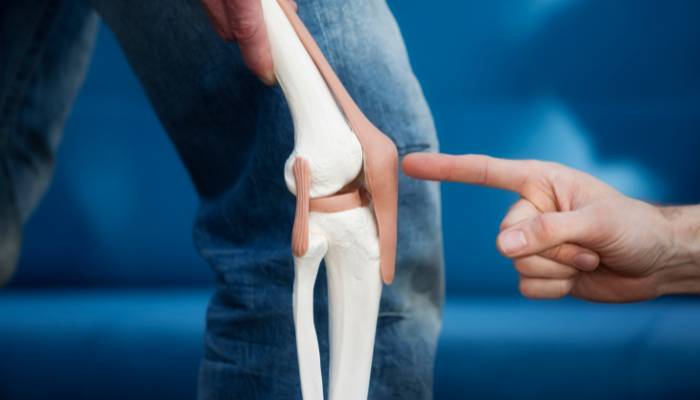

We use our joints in almost everything we do, from lifting a cup of coffee to going up the stairs. Healthy, strong joints can help you maintain a full range of motion and engage in various activities easily. Here are eight tips to keep your joints healthy, including eating the right foods and staying active with functional movement exercises:
1. Eat the Right Foods
Knowing what goes into your body is the first step toward healthy joints. Foods rich in omega-3 fatty acids, such as salmon and tuna, can help minimize inflammation and enhance joint health. Fruits and vegetables contain vitamins and minerals to keep your joints functioning optimally. Leafy vegetables, like kale and spinach, are especially beneficial as they provide magnesium, manganese, potassium, antioxidants, and vitamins. Avoid processed foods as they contain unhealthy fats, added sugar, and other additives that can lead to inflammation.
2. Stay Active With Functional Movement
Functional movement helps to improve our ability to move more naturally and efficiently in everyday activities. It takes your joints through a full range of motion while engaging the surrounding muscles. Yoga is one example of functional movement and is known for its ability to improve flexibility, balance, and posture.
Low-impact activities like walking, swimming, and light weight-bearing exercises like squats and lunges can also benefit your joints. The goal is to move your joints in multiple directions, strengthening the surrounding muscles and increasing mobility.
3. Maintain the Ideal Weight
Excess weight strains your joints, especially your hips and knees. That may lead to pain, swelling, and a reduced range of motion. Consider consulting a weight loss expert for professional advice if you’re overweight. They can evaluate your height, activity levels, and dietary habits and recommend a suitable plan to shed some pounds. They may suggest dietary modifications, more physical activity, or combining both. If your weight gain is due to a medical condition, your doctor can guide you to achieve your weight loss goals in a healthy way.

4. Know Your Limits
Although you need to stay active, learn to realize when your body needs rest. Slow down and take a break if you are experiencing joint pain or soreness during physical activity. Overexertion can easily lead to injury and may worsen existing conditions. Warming up before exercise and cooling down afterward can also reduce the risk of joint injuries. If you work in an industry where you must lift heavy objects often, know your weight threshold and avoid pushing yourself past it. Use proper form and technique to avoid straining your joints.
5. Use Proper Posture
Poor posture can strain your joints unnecessarily and even cause long-term problems. Whether you’re standing, walking, or sitting, put your spine in a neutral position and keep your shoulders back. Avoid sitting for long periods or slouching while standing, as that can contribute to pain and inflammation in your neck, shoulders, and back. Invest in a good ergonomic office chair or place a cushion between you and your desk chair to maintain the ideal working posture.
6. Stay Hydrated
The fluid that lubricates your joints consists of mostly water. Dehydration can reduce this fluid’s amount and increase friction, making your joints more prone to injury. Carry a reusable water bottle around and fill it up at work, at home, or while running errands. You can also eat fruits and vegetables high in water content, like cucumbers and watermelons.
7. Stretch Regularly
Stretching can help improve flexibility and keep the muscles surrounding your joints strong. It can also relieve tension and reduce pain related to tight muscles. Since stretching isn’t strenuous, you can do it almost anywhere and anytime. Aim for several minutes of stretching daily to keep your muscles loose and joints mobile. If you’re new to stretching, consider taking a yoga class. The instructor can guide you on properly performing the stretches and modifying them according to your fitness level.
8. Treat Joint Injuries Immediately
If you experience pain in any of your joints, consult a doctor immediately. They can assess the injury’s severity and recommend a suitable treatment plan. Your doctor may suggest medications, physiotherapy, rest, or a combination of all three. Ignoring the injury could lead to further mobility issues, so take any joint-related pain seriously.
Maintain Good Joint Health
These tips can help you care for your joints and maintain their health. Healthy joints allow us to move freely and complete everyday tasks, so take the proper steps to protect them. Talk to a medical professional if you are experiencing any joint pain for more specific advice and treatment.

Welcome to MithilaConnect, where we curate the art of living, celebrating the vibrant tapestry of life through culture, fashion, food, and everything in between.
